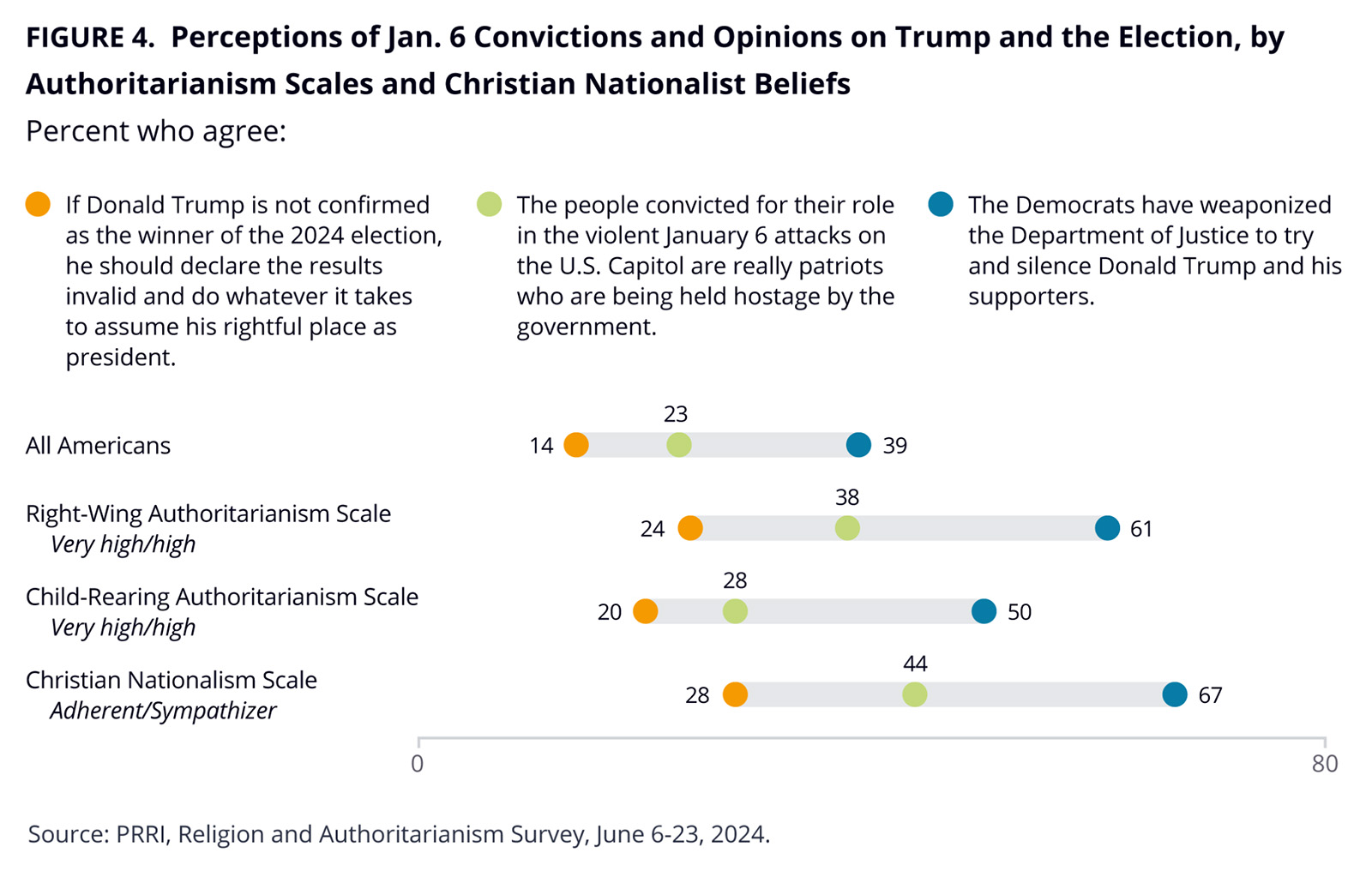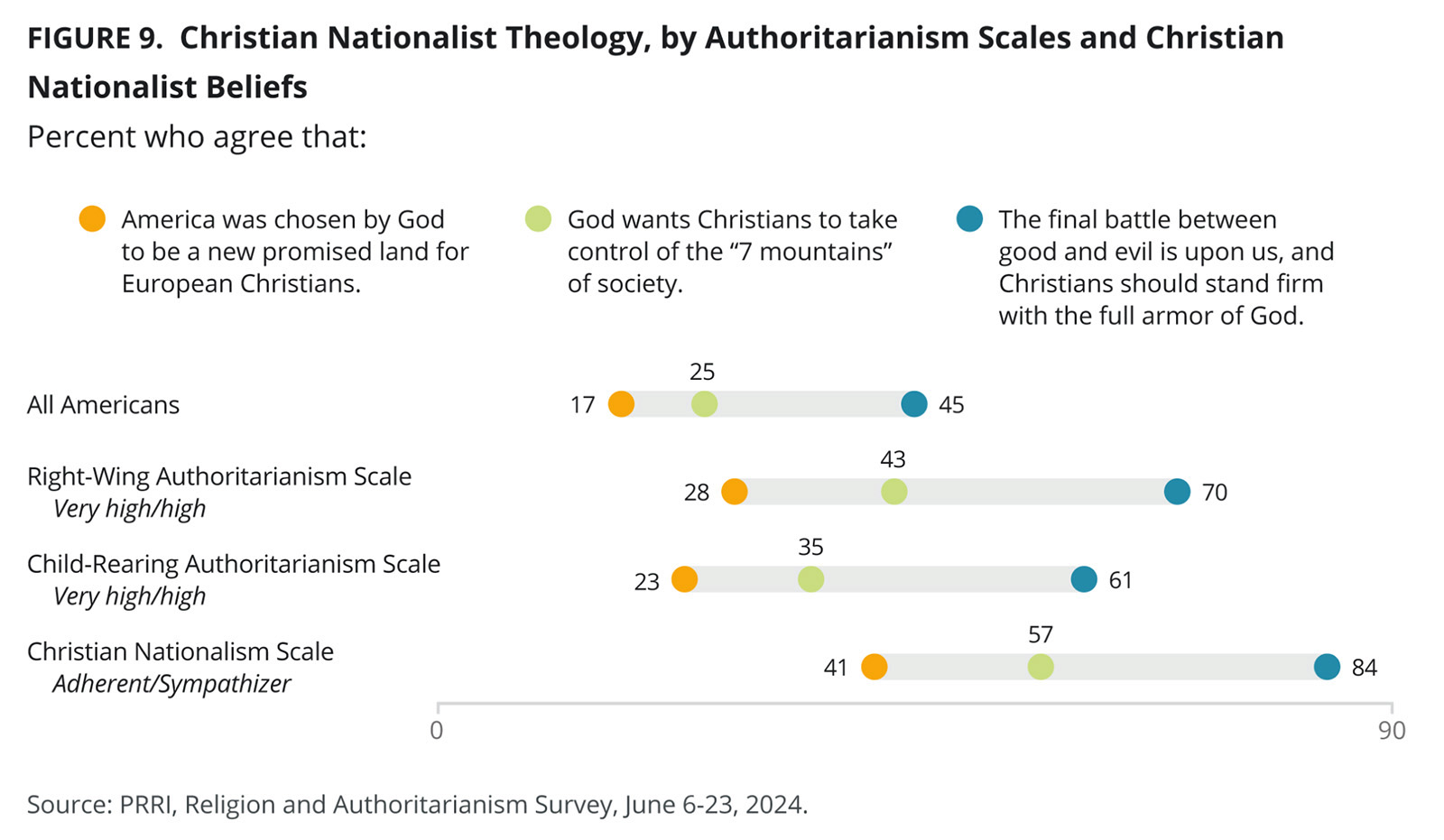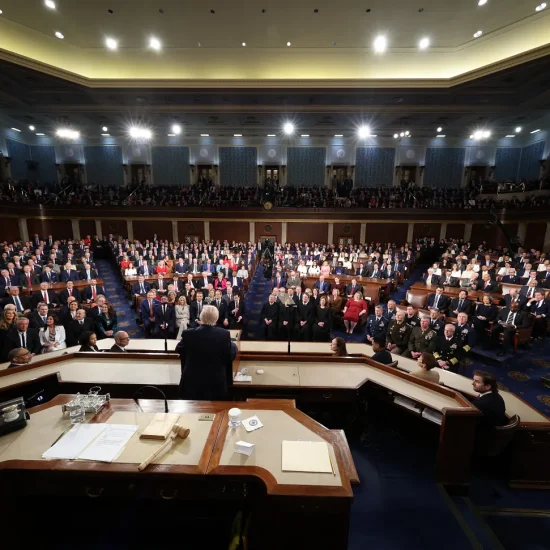
(RNS) — Americans who hold Christian nationalist views are also likely to express support for forms of authoritarianism, according to a new report, pointing to a possible link between those who advocate for a Christian nation and people who agree with statements such as the need to “smash the perversions eating away at our moral fiber and traditional beliefs.”
The Public Religion Research Institute unveiled the new survey last week during Religion News Service’s 90th anniversary celebration in New York City, presenting the data to a room of faith leaders, advocates, and reporters. A statement sent to RNS on Monday (Sept 16), Melissa Deckman, CEO of PRRI, framed the study as an effort to connect recent research on Christian nationalism with longstanding efforts to assess authoritarianism.

(Photo by Thirdman/Pexels/Creative Commons)
“While most Americans do not espouse authoritarian views, our study demonstrates that such views are disproportionately held by Christian nationalists, who we know in our past research have been more prone to accept political violence and more likely to hold antidemocratic attitudes than other Americans,” Deckman said.
In addition to being presented with questions from PRRI’s ongoing study of Christian nationalism — which tracks support for the ideology by rating people on a scale of Adherents, Sympathizers, Skeptics, or Rejecters — survey respondents were asked whether they agree with statements such as “What our country really needs is a strong, determined leader who will crush evil, and take us back to our true path” and whether they think children should exhibit traits such as obedience and curiosity.
Such questions were based on two well-known rubrics to measure authoritarian leanings: the Right-Wing Authoritarianism Scale, which was developed in 1950 by a group of scholars at the University of California, Berkeley, and the Child-Rearing Authoritarianism Scale, which social scientists use to measure similar trends with child-rearing preferences as a framework.
Researchers found striking connections in the responses. A large majority of Christian nationalism supporters (namely, Adherents and Sympathizers) also scored high on both the RWAS (74%) and CRAS (61%) — significantly more than Christian nationalism Skeptics and Rejecters (30% and 31%, respectively). In addition, about half (51%) of those who scored high on the RWAS also qualified as Christian nationalism supporters. The reverse was true among those with low RWAS scores: only 7% could be classified as Christian nationalism supporters.

“Support for Strong Leaders and Authoritarian Presidential Powers, by Authoritarianism Scales and Christian Nationalist Beliefs” (Graphic courtesy PRRI)
And while few Americans overall (34%) agreed the U.S. needs a “strong leader who is willing to break some rules,” the statement was supported by majorities of both Christian nationalism supporters (55%) and those who score high on the RWAS (59%).
PRRI also asked questions about current events, such as whether respondents agreed that those who were convicted of crimes for participating in the Jan. 6 insurrection are “patriots” who are “being held hostage by the government,” or that Trump should do “whatever it takes to be president” if he is not declared the winner outright in November. Few Americans overall agreed with either statement (23% and 14%, respectively), but support was noticeably higher among supporters of Christian nationalism (44% and 28%) and those who scored high on the RWAS (38% and 24%).

“Perceptions of Jan. 6 Convictions and Opinions on Trump and the Election, by Authoritarianism Scales and Christian Nationalist Beliefs” (Graphic courtesy PRRI)
Researchers also asked respondents whether they were supporters of “7 Mountains” theology, a belief system popular in some conservative circles that calls on Christians to seek control over the seven “mountains” of society — including politics. Most Christian nationalist Sympathizers and Adherents (57%) said they backed the sentiment, as did significant percentages of those who scored high or very high on the RWAS (43%) or the CRAS (35%).
The theology found its greatest support among white evangelical Protestants in the survey (48%), followed by around 4 in 10 Black Protestants (42%) and Hispanic Protestants (42%).
“Our new survey shows, too, a close intertwining of apocalyptic and dominionist views among Americans who support authoritarianism. In short, authoritarianism in America is not wholly secular, but has important religious dimensions,” Deckman said.
Supporters of Christian nationalism were also highly likely (84%) to agree that “the final battle between good and evil is upon us, and Christians should stand firm with the full armor of God,” as were those who scored high or very high on the RWAS (70%) and the CRAS (61%).

“Christian Nationalist Theology, by Authoritarianism Scales and Christian Nationalist Beliefs” (Graphic courtesy PRRI)
Perhaps most troubling of all: While no group exhibited majority support for the idea that “American patriots may have to resort to violence in order to save our country” (only 16% of Americans overall agreed), the idea was most popular among Christian nationalism supporters, with 33% of Adherents and Sympathizers saying they agreed, while 28% and 21% of those who scored high on the RWAS and CRAS, respectively, agreed.






